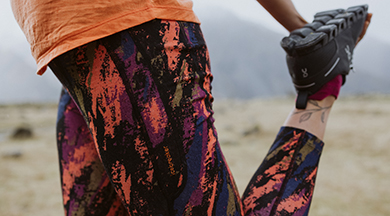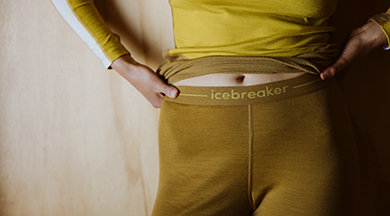5 easy swaps you can make to live a more natural lifestyle
22 July 2022
Whether you’ve already made a start on your move to a more sustainable lifestyle or are keen to get started, here are five easy swaps you can make to live more naturally.
1. From plastic wraps to beeswax
Beeswax wraps have become a staple in many kitchens, and if you haven’t already made the switch, now’s the time.
These wraps are made from cotton and beeswax rather than plastic, saving you scrolls and scrolls of single-use plastic wrap to cover food in your fridge and to package items to take to lunch. You simply use the warmth of your hands to gently mould the wrap around your dish or meal.
2. From synthetic materials to merino wool
Natural fibres are more eco-friendly than synthetic materials in a number of ways.
At its creation, natural fibres are superior simply because they are natural. Merino wool, which comes from merino sheep, is a renewable, eco-friendly source of material. Compare that with man-made synthetic materials that are derived from gas, oil, and coal. For example, as much as 70 million barrels of oil are used each year to make synthetic fibres.
But the biggest problem with synthetic material is what happens after you’re done with it.
Fashion and apparel accounts for 10% of the world’s global emissions each year - that’s second only to oil when it comes to industrial polluters. The creation of synthetic materials is certainly part of that, but a bigger part is how much time it takes for synthetic materials to break down. They are not only non-biodegradable, but they can release microplastics and chemicals into the environment as well.
Again, compare this with natural wool fibres, which break down naturally within a matter of months.
We’re not saying to dump all your synthetic clothes right away, but when they do wear out, dispose of them consciously (cut them up into house rags first etc) and replace them with natural materials such as icebreaker merino wool when it is time to go shopping again.
3. From bottled shampoo and conditioner to bars
How many bottles of shampoo and conditioner does your household go through every month, or every year?
Even though they can be recycled, there is another option that would mean they don’t have to be created in the first place, let alone recycled.
And that’s shampoo and conditioner bars. These solid bar hair products look a little like soap bars, but will wash and condition your hair - all without the more wasteful bottles that traditional products come in.
That said, if you love your traditional shampoos and conditioners, you can also switch to reusable bottles and refill them with some suppliers.
4. From material gifts to immaterial ones
Christmas, birthdays, Valentine’s Day, anniversaries, and everything in between - there are plenty of great excuses to shower our loved ones with gifts throughout the year.
Make an effort to swap some of your material gift ideas to immaterials ones. For example, instead of getting them a new handbag or knick-knack, you might consider gifting them an experience you can enjoy together, an audiobook subscription, or simply a dinner out.
Even if it’s not possible for every gift, making the conscious choice to switch to an immaterial gift can reduce waste in small but important ways.
Likewise, when someone asks you what’s on your wishlist, you can respond with something that’s either low/no waste, or at least eco-friendly by design (like merino socks!).
5. From red meat to white (or from white to veggies)
It’s unrealistic to expect lifetime red meat eaters to give it up ‘cold turkey’, but one swap you can make is to switch from red to white meat more often.
Red meat has a much higher carbon footprint for a number of reasons. For one, as a much larger animal, it takes much more land and resources. As much as 80% of the deforestation in the Amazon rainforest is attributed to cattle grazing, and the ‘water footprint’ of meat from beef cattle is 15,400m3 /ton on average, compared with just 4,300m3/ton on average for chicken.
Naturally, plant-based dishes have the lowest carbon footprint of them all, but if it’s too much of a change to cut out meat completely, at least swapping from red to white is definitely a helpful move in the right direction.
Just be sure to speak with your doctor before making any kind of dietary changes.
So whether you’re going to start shopping for merino clothing online the next time you need a new top, or if you’ll invest in some beeswax wraps and say goodbye to the plastic in the kitchen, or all if you’ll make all five swaps, there are definitely easy ways out there you can live a more natural lifestyle.









